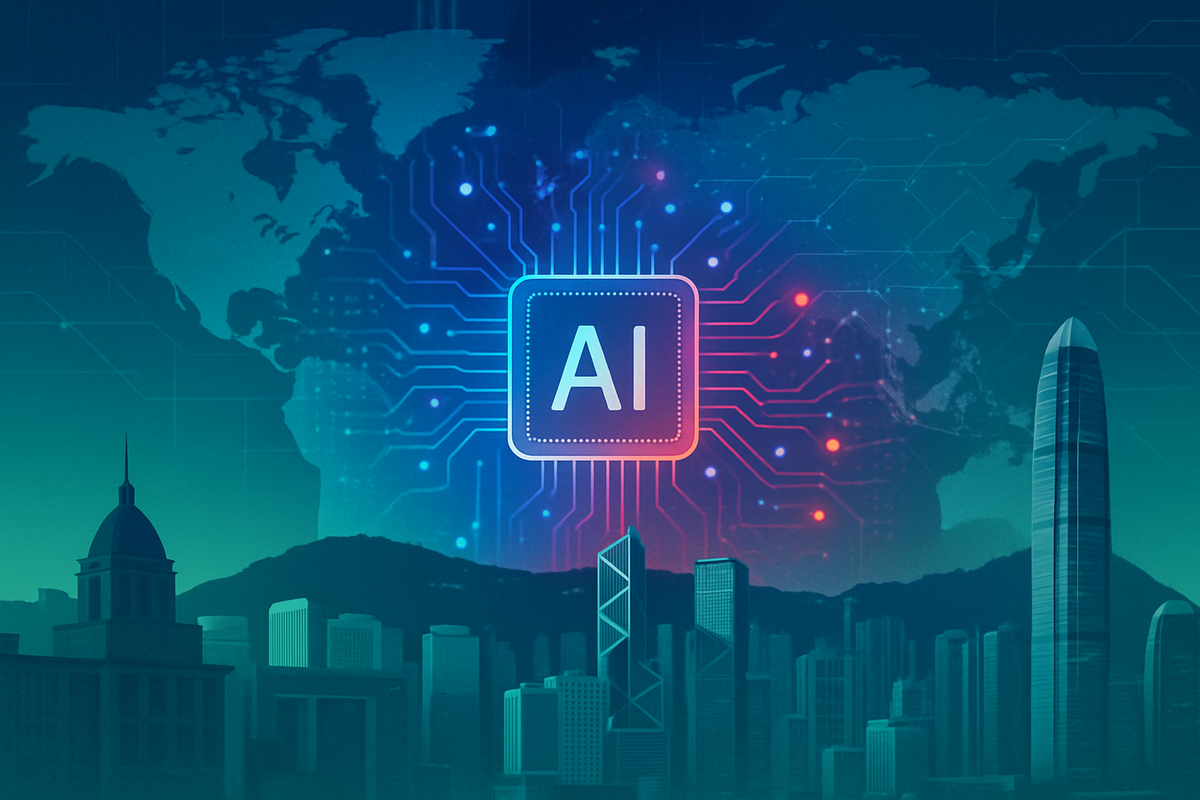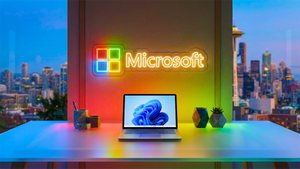Financial News
Global Financial Tides Shift: HSBC's Hong Kong Consolidation and Nvidia's UAE AI Frontier Redefine Market Dynamics

October 9, 2025 – Today marks a pivotal moment in global finance and technology trade, as two distinct yet equally impactful corporate actions send ripples across Asian and European markets. In a bold strategic maneuver, HSBC Holdings (LSE: HSBC) has announced its intention to privatize its Hong Kong-listed subsidiary, Hang Seng Bank (HKEX: 0011), in a deal valued at approximately US$13.6 billion. Simultaneously, the United States government has given its official nod to Nvidia (NASDAQ: NVDA) for a landmark deal to export advanced AI chips to the United Arab Emirates, fundamentally altering the landscape of global AI infrastructure and geopolitical tech alliances. These developments underscore a dynamic global marketplace where strategic consolidation and technological diplomacy are reshaping investment flows and market valuations.
These significant events, both unfolding on this very day, illustrate the complex interplay of regional banking strategies and high-stakes technological competition. HSBC's move signals a deeper commitment to its Asian roots and a simplification of its operational structure in a key market, while Nvidia's expanded reach into the UAE cements its dominance in the burgeoning AI sector and highlights the US's strategic efforts to build tech alliances. Investors and market watchers are now closely scrutinizing the immediate reactions and long-term implications of these corporate decisions, which are set to redefine competitive landscapes and national technological capabilities.
Strategic Consolidation in Asia and AI Diplomacy in the Middle East
The financial world woke up to the news of HSBC's ambitious plan to acquire the remaining 36.5% of Hang Seng Bank shares it does not already own, offering HK$155 per share in cash. This offer represents a substantial premium of 30% to 33.1% over Hang Seng Bank's closing price on the preceding Wednesday, valuing the entire entity at around US$37 billion. HSBC Group CEO Georges Elhedery articulated the strategic rationale behind this privatization, emphasizing a desire to simplify HSBC's corporate structure, strengthen its leadership position in Hong Kong, and enhance its ability to manage capital and regulatory metrics more efficiently. Sources close to the deal suggest the move could also allow HSBC to more effectively address and clean up Hang Seng Bank's increasing exposure to Hong Kong's struggling commercial property market, away from public scrutiny. The acquisition is expected to be completed in the first half of 2026, pending Hang Seng shareholder approvals and High Court sanction in Hong Kong.
Concurrently, the US Department of Commerce's Bureau of Industry and Security issued export licenses today, October 9, 2025, paving the way for Nvidia to ship its cutting-edge H100 AI chips and future architectures like Blackwell, Rubin, and Feynman to the UAE. This agreement, underpinned by a bilateral AI pact finalized in May 2025, permits the UAE to acquire up to 500,000 advanced AI chips annually from 2025 until 2030. This monumental export flow is aimed at powering the UAE's ambitious 5-gigawatt AI data center campus in Abu Dhabi, with shipments anticipated to begin in Q1 2026. The deal, which could generate an estimated $15 billion in annual revenue for Nvidia if 500,000 Blackwell chips are sold annually, marks a significant shift from previous US restrictions on high-end chip exports to the region, reflecting a strategic push by the current administration to deepen technology ties with Gulf partners. Oversight mechanisms are in place to prevent diversion to countries like China or Russia, though some US officials remain cautious given the UAE's existing economic relationships.
Initial market reactions to these announcements have been distinct. Hang Seng Bank (HKEX: 0011) shares surged dramatically, jumping by approximately 26.13% to 27% to settle around HK$150.1, driven by the attractive offer price. Conversely, HSBC's (LSE: HSBC) Hong Kong-listed stock experienced a sharp decline of 6% to 7.2%, falling to HK$103.4. This negative sentiment was largely attributed to HSBC's revelation that it would pause its share buyback program for approximately three quarters to conserve capital for the acquisition, disappointing investors who had anticipated continued capital returns. Meanwhile, Nvidia's (NASDAQ: NVDA) stock soared to a new record high, pushing its market capitalization beyond $4.7 trillion, as analysts revised price targets upward, projecting substantial revenue growth from the UAE deal.
Winners and Losers in a Reshaping Global Market
The immediate beneficiaries of these corporate maneuvers are clearly identifiable. Hang Seng Bank (HKEX: 0011) shareholders are poised to win significantly, as HSBC's offer price of HK$155 per share provides a substantial premium, allowing them to cash out at a favorable valuation. Nvidia (NASDAQ: NVDA) emerges as a major victor, with its stock hitting new highs and analysts projecting massive revenue streams from the UAE deal, solidifying its leadership in the AI chip market and diversifying its global sales channels beyond traditional tech hubs. The United Arab Emirates also stands to gain immensely, securing a critical supply of advanced AI chips that will accelerate its ambition to become a global AI powerhouse, driving economic diversification and technological advancement within the nation. American cloud operators with data centers in the UAE are also positioned favorably, as they will initially operate the advanced GPUs, aligning with US strategy to maintain control over critical AI infrastructure.
On the other side of the ledger, HSBC (LSE: HSBC) shareholders faced immediate losses, with the stock declining sharply due to the announced suspension of share buybacks. While the long-term strategic benefits of the Hang Seng privatization are touted, the short-term capital allocation decision has dampened investor enthusiasm for immediate returns. Competitors in the Asian banking sector, particularly those operating in Hong Kong, might face increased competitive pressure from a more consolidated and strategically streamlined HSBC. In the technology realm, while not direct "losers," rival AI chip manufacturers and US tech companies that previously faced restrictions on exporting advanced chips to the Middle East might view Nvidia's approved deal with a mix of opportunity and envy, as it sets a precedent and potentially reconfigures the competitive landscape for high-performance computing hardware. Furthermore, China could be considered a geopolitical "loser" in this scenario, as the US's "AI diplomacy" with the UAE is explicitly designed to counter Beijing's growing influence and prevent the diversion of critical technology.
Broader Implications for Industry and Geopolitics
These events fit squarely into broader industry trends and carry significant geopolitical weight. HSBC's privatization of Hang Seng Bank reflects a growing trend of financial institutions streamlining operations and consolidating market share in key regions, particularly in Asia, which remains a primary growth engine for global banking. This move reinforces HSBC's "pivot to Asia" strategy, deepening its roots in Hong Kong and potentially setting a precedent for similar consolidations in mature financial markets seeking greater efficiency and control. It also highlights the evolving regulatory landscape, where parent-subsidiary double listings are increasingly scrutinized, prompting companies to simplify structures. The decision to take Hang Seng private amid its rising exposure to commercial property loans also underscores the proactive measures banks are taking to manage risk and maintain financial stability in volatile real estate markets.
Nvidia's extensive chip export deal with the UAE is a potent symbol of the accelerating global AI race and the weaponization of technology in international relations. It signifies a major shift in US foreign policy, moving from broad export restrictions to targeted "AI diplomacy" aimed at building strategic alliances and countering China's technological ambitions. The stringent conditions attached to the deal, including reciprocal investments and oversight mechanisms, illustrate the complex balancing act between fostering economic partnerships and safeguarding national security interests. This event will undoubtedly reverberate across the global semiconductor supply chain, influencing investment in AI infrastructure, research, and development. It also raises questions about the long-term effectiveness of such controls and the potential for other nations to seek similar deals, further fragmenting the global tech landscape. The shift from the previous administration's more restrictive approach to the current administration's strategic engagement with the UAE marks a significant evolution in how the US plans to manage its technological supremacy.
What Comes Next: Navigating New Frontiers
In the short term, the focus for HSBC (LSE: HSBC) will be on securing the necessary shareholder approvals from Hang Seng Bank (HKEX: 0011) and obtaining sanction from the High Court in Hong Kong for the privatization. This process, expected to conclude in the first half of 2026, will be closely watched for any potential hurdles or dissenting voices. Once privatized, HSBC will embark on the integration of Hang Seng Bank, aiming to realize the promised synergies and efficiencies while maintaining Hang Seng's distinct brand and customer proposition. Investors will be keenly observing HSBC's capital allocation strategies post-acquisition, particularly regarding the resumption of share buybacks and future dividend policies. The market will also assess how effectively HSBC manages Hang Seng's commercial property loan book and whether the privatization truly enhances the group's overall financial performance.
For Nvidia (NASDAQ: NVDA) and the UAE, the immediate next steps involve the commencement of chip shipments in Q1 2026 and the rapid build-out of the 5-gigawatt AI data center campus in Abu Dhabi. The success of this ambitious project will be a testament to the effectiveness of the US-UAE bilateral AI agreement and its accompanying oversight mechanisms. Market opportunities will emerge for American cloud operators and other technology firms involved in the deployment and management of this advanced AI infrastructure. However, challenges may arise from geopolitical tensions, as the deal's fine print regarding technology diversion will be under constant scrutiny, especially concerning the UAE's existing ties with China. The long-term possibilities include the UAE solidifying its position as a major global AI hub, potentially attracting further foreign direct investment in its tech sector, while Nvidia could leverage this success to forge similar strategic partnerships in other regions, further expanding its global footprint and reinforcing its dominant position in the AI hardware market.
A Reshaped Global Economic Tapestry
Today's announcements regarding HSBC's Hang Seng deal and Nvidia's UAE chip exports represent more than just corporate transactions; they are significant markers in the ongoing evolution of global trade and investment flows. The HSBC (LSE: HSBC) privatization signifies a strategic consolidation within the Asian financial sector, driven by a desire for operational efficiency, market dominance, and effective risk management. It underscores the continued importance of Hong Kong as a financial hub, even as its dynamics evolve. The immediate market reaction, with Hang Seng Bank (HKEX: 0011) shares soaring and HSBC's dipping, highlights the short-term market sensitivity to capital allocation decisions versus long-term strategic plays.
Nvidia's (NASDAQ: NVDA) landmark chip export deal with the UAE, facilitated by US government approval, is a powerful illustration of how advanced technology has become a central pillar of international diplomacy and economic competition. It not only bolsters Nvidia's revenue and market leadership but also positions the UAE as a formidable player in the global AI landscape, while serving the US's broader geopolitical objective of countering rival influences. The surge in Nvidia's stock and the projected multi-billion-dollar revenue stream underscore the immense value and strategic importance of AI hardware in the modern economy.
Moving forward, investors should closely watch HSBC's integration efforts and its future capital return policies, as well as the successful implementation and geopolitical implications of the Nvidia-UAE chip deal. These events collectively paint a picture of a global economy undergoing rapid transformation, where strategic corporate decisions and government-backed technological initiatives are reshaping market dynamics, fostering new alliances, and intensifying competition across continents. The lasting impact of these actions will be felt for years to come, influencing capital flows, technological advancements, and the delicate balance of global power.
This content is intended for informational purposes only and is not financial advice
More News
View More




Recent Quotes
View MoreQuotes delayed at least 20 minutes.
By accessing this page, you agree to the Privacy Policy and Terms Of Service.



